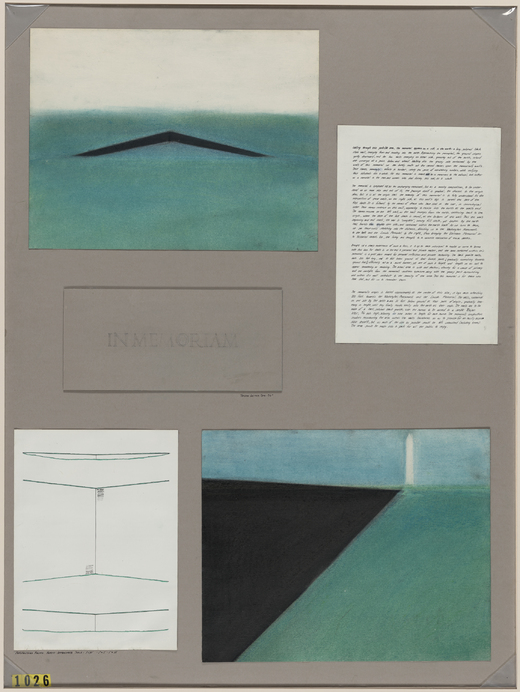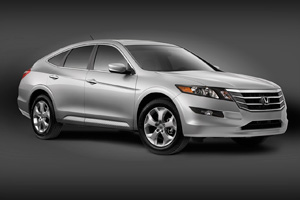
Maya Lin’s original competition submission for the Vietnam Veterans Memorial in Washington, D.C. Architectural drawings and a one page written summary. It was chosen from 1,421 entries submitted.
You’re reading Signal v. Noise, a publication about the web by Basecamp since 1999. Happy !

Now: The creator of Vooza, "the Spinal Tap of startups." Previously: Employee #1 at 37signals and co-author of the books Rework and Getting Real.

Maya Lin’s original competition submission for the Vietnam Veterans Memorial in Washington, D.C. Architectural drawings and a one page written summary. It was chosen from 1,421 entries submitted.
“Why business loves Charlie Rose” discusses Rose’s interview with Susie Buffett, Warren’s wife.
Rose’s interview with Buffett’s wife, Susie — three months before her unexpected death in 2004 — was both authentic and touching. It was the only TV interview of her life; she gave a glimpse of why Warren treasured her and how they made an unconventional marriage work. It was one of Rose’s least affected, most nuanced performances; mention it to [Buffett friend Bill] Gates and you can hear him well up a little.
Below is the interview. I remember watching it when it originally aired and thinking that she seemed like a really amazing lady. Warren really does know how to pick ‘em.
The nature of the personal computer is simply not fully understood by companies like Apple (or anyone else for that matter). Apple makes the arrogant assumption of thinking that it knows what you want and need. It, unfortunately, leaves the “why” out of the equation — as in “why would I want this?” The Macintosh uses an experimental pointing device called a “mouse.” There is no evidence that people want to use these things. I don’t want one of these new fangled devices.
“In any other country, Milton Glaser would have been knighted by now,” said Steven Heller about the legendary designer recently. The implication: Americans don’t care about design as much as people in other countries.
A recent email conversation touched on the same nerve…
 “I don’t think they could have made it any uglier if they had tried—even if they were trying really, really hard to make it ugly.”
“I don’t think they could have made it any uglier if they had tried—even if they were trying really, really hard to make it ugly.”
That’s what ex-37signaller and now Nike employee Ernest Kim wrote in a note to a few of us about the 2010 Accord Crosstour (shown here). Looks like others agree with him too.
Ernest wonders why the cars Honda designs for markets outside the U.S. look better than the ones designed specifically for the American market. Could it be that Americans just have bad taste?
Continued…The sad part to me is that Honda cars designed for markets outside of the U.S. generally look at least decent (examples being the Fit, Euro/Japan Accord (aka the Acura TSX here in the States), S2000), but the ones specifically for U.S. consumption are horrendous (examples being this awful Crosstour, the Pilot SUV and Ridgeline pick-up).
One reason might simply be that their U.S.-based design team is not very good, but I suspect it has more to do with U.S.-based focus groups and lowered standards for U.S. focused products, which is the approach that led to GM’s eventual bankruptcy.
I know it’s the trendy thing to do to say that Americans, on the whole, have bad taste, but I really believe it’s true. A product that’s just good enough to be wildly popular in the U.S. typically doesn’t make the cut anywhere.
I have to wonder why our standards seem to be so much lower? Having traveled to Europe and Asia, I don’t think the average European or Asian person is any smarter than the average American, but their standards for product design seem appreciably higher. Is it because people outside the U.S. tend to buy fewer items and so have higher expectations for those items? Or some other cultural influence that they have and we don’t?
What do you guys think?
Something that’s very important for us to communicate is usually very simple. Like breathing: Breathing is very simple. You don’t do a dissonant 9th harmony or something in breathing. You just breathe, you know. I think that’s how it is with very important messages.

Australia’s worst dust storm in 70 years leads to some amazing photos (above by tomhide). More dust storm photos at Flickr.
I was watching a Q&A presentation at a conference a while back. Several questioners said something along these lines: “I was so inspired by what you say that I decided to quit my job and start a new business!” And then the whole room broke out in applause.
Seen this sorta thing elsewhere too. Someone says, “I quit my job to follow my dream of [starting XYZ business/acting/whatever].” And everyone oohs and ahhs and says how great it is.
My problem with that: Quitting your job is easy. That, on its own, doesn’t deserve applause. If you quit and start something new and persevere for years and make it happen, then you deserve hosannas. But just quitting? Anyone can do that.
And starting something is only a little bit harder. It’s easy to start something. Following through is the tough part. Just look at the landscape of abandoned blogs that litter the web for proof of that.
Contrast that to the reaction people who keep their day jobs and build something on the side get. Actually, they don’t get much reaction at all. There are no dramatic, sweeping statements about quitting so people don’t care as much.
Too bad. Doing what you love on the side means you don’t have to risk everything immediately. You have a steady income so you’re less desperate. You can build it slowly until whatever it is is such a success that it justifies quitting your regular job. It’s a measured approach instead of a toss of the dice. Plus, you can easily turn around if you go down the wrong path (or lose motivation).
Maybe these “keep the day job and build it on the side” folks are the ones who really deserve the applause.
The phrase “executive summary” is strange.
“Oh, you’re the most important person? You only need to read this. Everyone else: Go ahead and waste your time with the full thing!”
Why should only executives be spared the task of reading fluff? If the important, power-wielding, DECIDER only needs to read a few paragraphs to get what’s going on, that should be enough for everyone else too.
Sure, the real context of these summaries is usually “If you don’t have full bandwidth right now, read this.” But if that’s the real meaning, why not have a title which accurately reflects that?